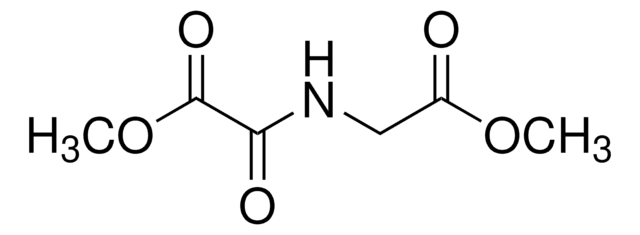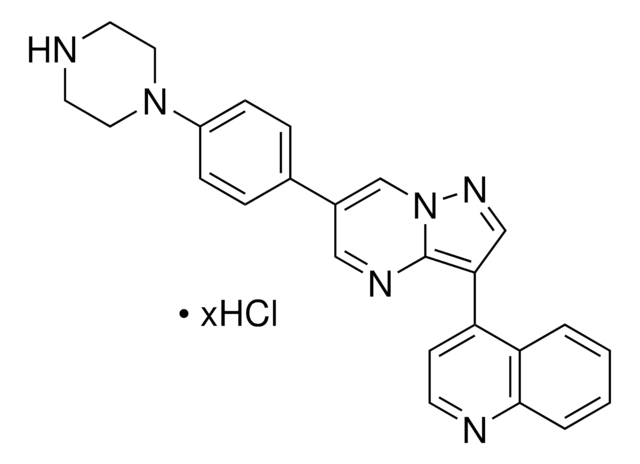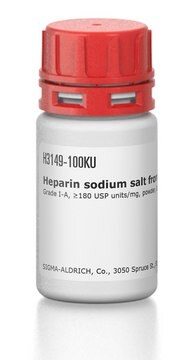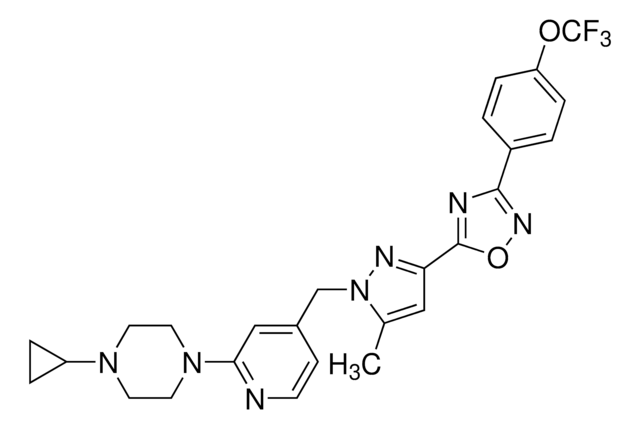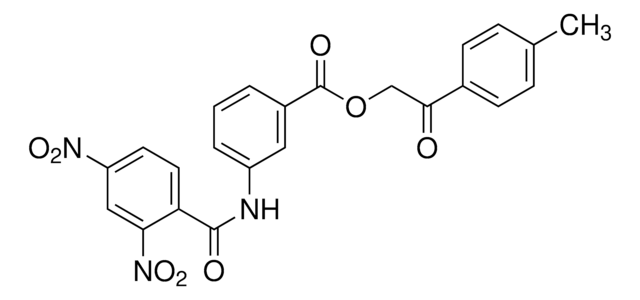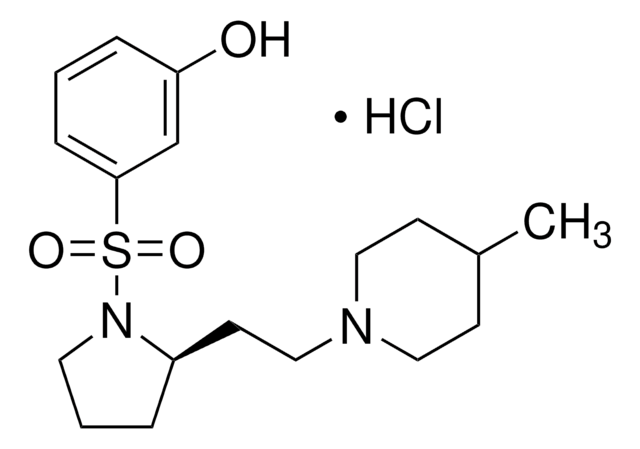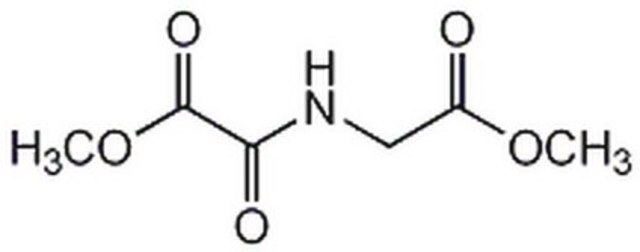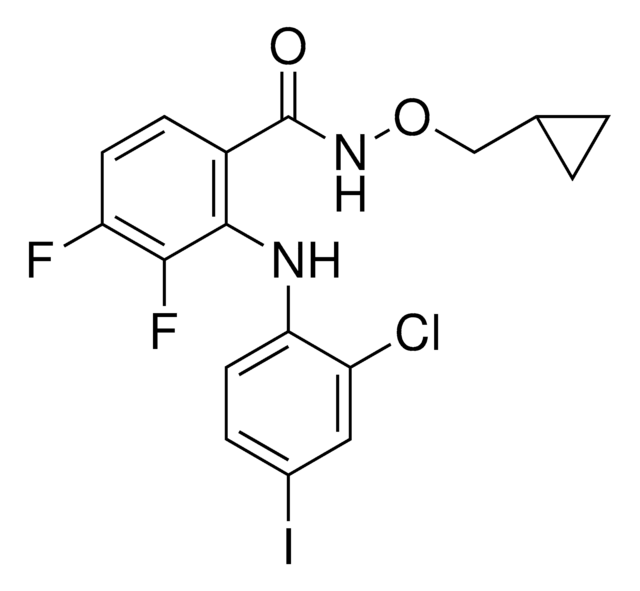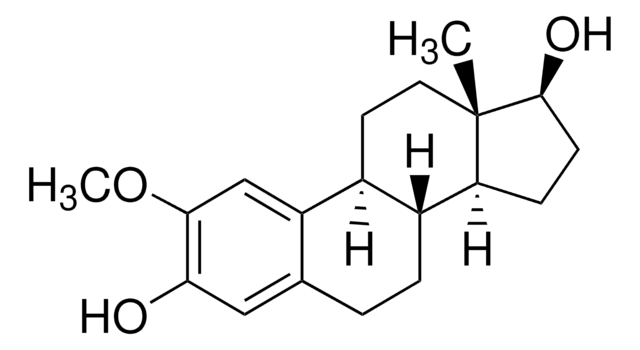Y102
YC-1
powder
Synonym(s):
3-(5′-Hydroxymethyl-2′-furyl)-1-benzyl indazole
About This Item
Recommended Products
form
powder
Quality Level
color
white to yellow
solubility
DMSO: 10 mg/mL
H2O: insoluble
SMILES string
OCc1ccc(o1)-c2nn(Cc3ccccc3)c4ccccc24
InChI
1S/C19H16N2O2/c22-13-15-10-11-18(23-15)19-16-8-4-5-9-17(16)21(20-19)12-14-6-2-1-3-7-14/h1-11,22H,12-13H2
InChI key
OQQVFCKUDYMWGV-UHFFFAOYSA-N
Gene Information
human ... PDE5A(8654)
Application
- to reduce hypoxia induced Jagged1 expression in cardiomyocytes (CMs)
- to study its effect on progenitor expansion and CD34+ and side population (SP) cell phenotype and on the proliferation rate of cells with an ability to form long term colony forming units
- to study its effect on regulating sphingosine 1-phosphate (S1P) bound to albumin induced plasminogen activator inhibitor 1 (PAI-1) expression by activating Rho/ Rho-associated protein kinase (ROCK) pathway.
Biochem/physiol Actions
Features and Benefits
Storage Class Code
11 - Combustible Solids
WGK
WGK 3
Flash Point(F)
Not applicable
Flash Point(C)
Not applicable
Personal Protective Equipment
Certificates of Analysis (COA)
Search for Certificates of Analysis (COA) by entering the products Lot/Batch Number. Lot and Batch Numbers can be found on a product’s label following the words ‘Lot’ or ‘Batch’.
Already Own This Product?
Find documentation for the products that you have recently purchased in the Document Library.
Customers Also Viewed
Related Content
Cyclic nucleotides, including cyclic AMP (cAMP), cyclic GMP (cGMP) and cyclic ADP-ribose, have been extensively studied as second messengers of intracellular events initiated by activation of GPCRs. cAMP modifies cell function in all eukaryotic cells, principally through the activation of cAMP-dependent protein kinase (PKA), but also through cAMP-gated ion channels and guanine nucleotide exchange factors directly activated by cAMP.
Our team of scientists has experience in all areas of research including Life Science, Material Science, Chemical Synthesis, Chromatography, Analytical and many others.
Contact Technical Service
